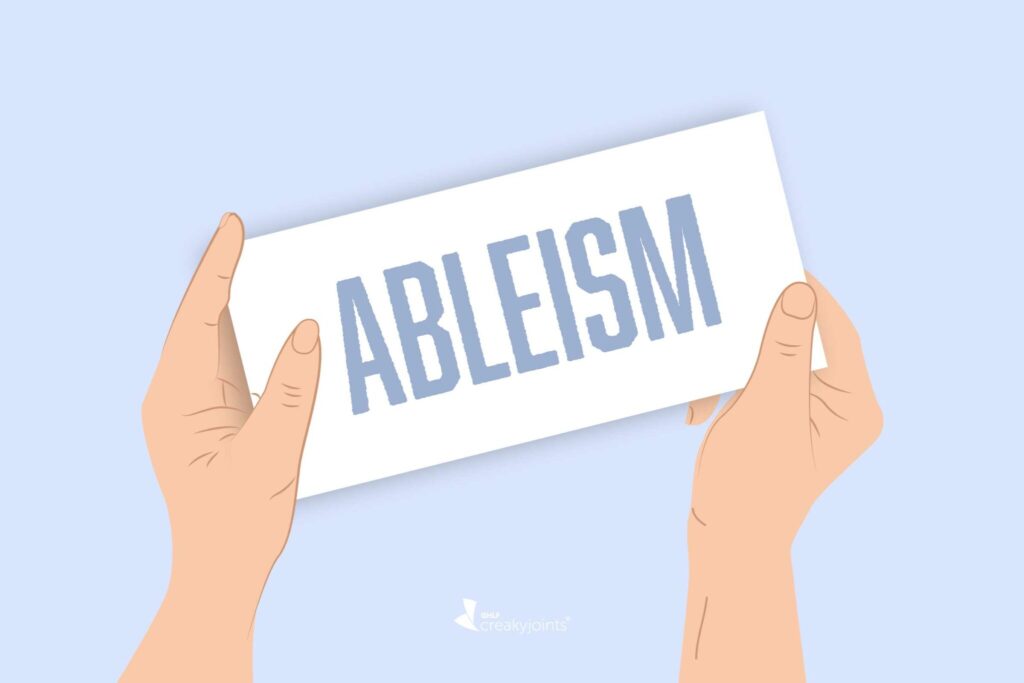Dismantling Your Inner Ableism to Live Better with Rheumatoid Arthritis

Systemic ableism is ingrained in our society and we internalize those messages. In my new essay for CreakyJoints in Canada, I share tips on how to start dismantling your own internalized ableism to create a much better life with chronic illness:
“It was productivity that got me. Or rather, yet another instance of overdoing simply everything and the inevitable flare that ensued. It wasn’t the first time I’d bought a ticket on that particular ride — living with rheumatoid arthritis (RA) means I frequently overdo. But it was the first time I got fed up enough to seriously consider why I keep doing this. It was a humdinger of a flare, so I had plenty of time to reflect and eventually found the answer: inner ableism.
It’s an important concept that contributes to many of the frustrations and emotional difficulties of living with a chronic illness, but one that we don’t talk about nearly enough. So let’s break the silence.
What Is Ableism?
You’ve heard of sexism and racism, prejudice based on gender or race that devalues and limits someone’s potential. Ableism is prejudice based on disability.
As with any other -ism, ableism can be interpersonal (one person discriminating against another due to their disability) or systemic (social systems and structures that by design or impact disadvantage disabled people). And because we live in a culture that for a very long time was created by and for white, able-bodied men, most of us have some level of internalized racism, sexism, and ableism.
Thankfully, the conversation to dismantle prejudice and discrimination has been ongoing for a while, particularly with sexism and racism, but the awareness of ableism is fairly new. I regularly meet people who have never heard the term and when I explain what it is, many are surprised that it’s a thing. Which is in and of itself an expression of ableism — or perhaps obliviousness.
One of the more blatant examples of personal and systemic ableism is employer insistence on physical presence in the office for jobs that can be done remotely, usually in the knowledge industry, that is, certain types of office-based work. People who live with disability and chronic illness have been asking to work remotely for years and have been told that this is impossible.
During the pandemic, we saw how quickly employers went remote, proving that it could be done after all. This reflects both the individual and direct ableism of employers who refused remote-work requests, as well as the systemic ableism of employment structures that did not allow for flexibility.
Internalized ableism within ourselves is a little trickier to identify but can often be found in feelings related to your sense of worth. For instance, I know that my struggle with overdoing is related to judging myself when I am not productive. More on that later in this column.”
Read my column on dismantling internalized ableism line CreakyJoints Canada.
Read More
Discover what else I've been writing about...















